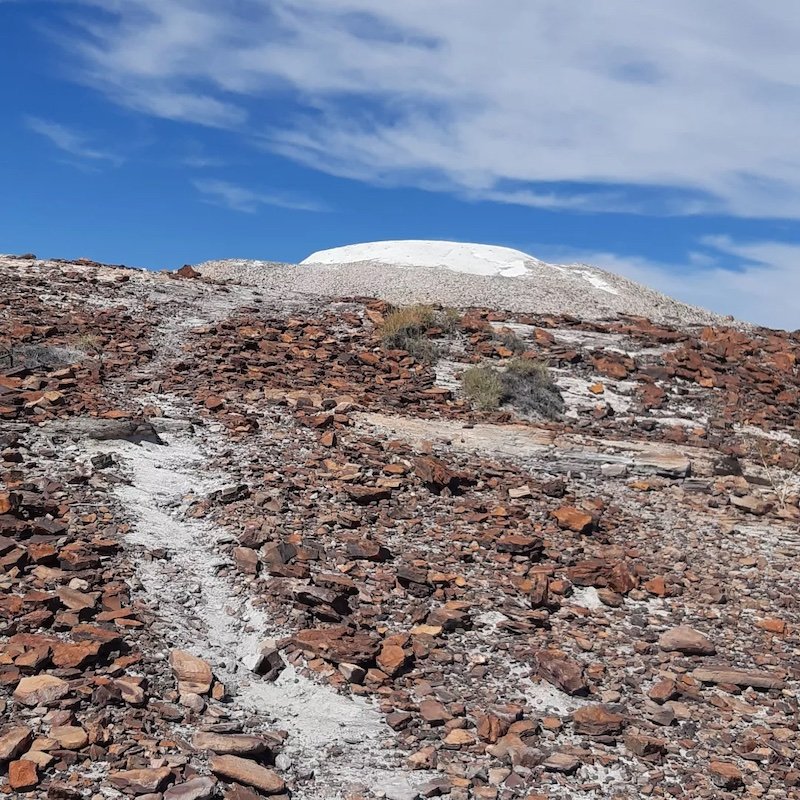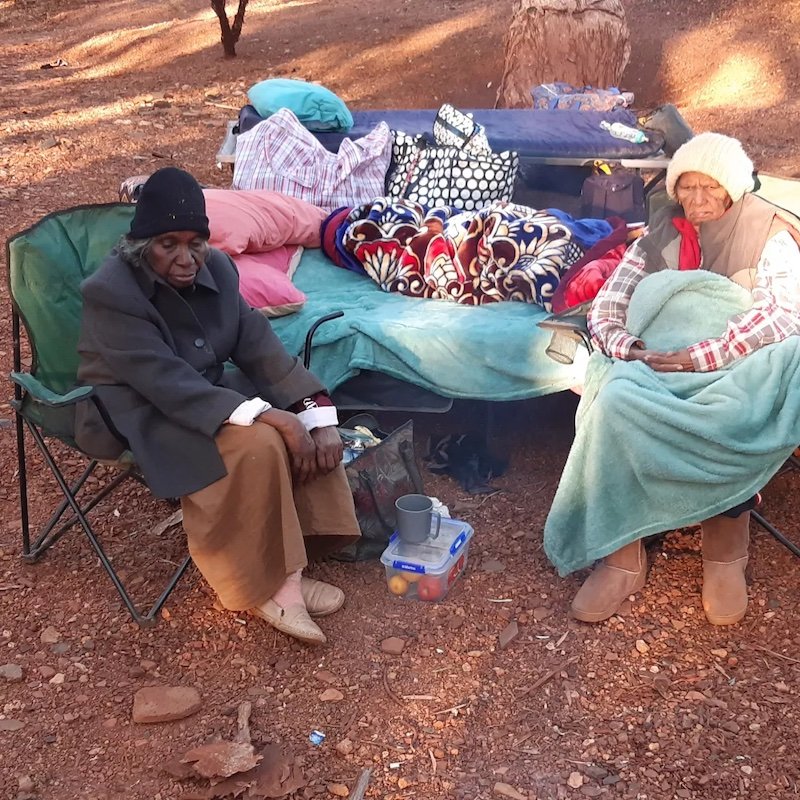Rural Utopias Residency: Nathan Gray in Ieramagadu / Roebourne #2
Nathan Gray is currently working with the community of Ieramagadu / Roebourne. This residency forms part of one of Spaced’s current programs, Rural Utopias.
Nathan Gray is an accomplished Berlin-based sound artist, programmer and broadcaster whose practice is an interdisciplinary one that crosses over into film, video, performance and installation. Gray's recent, meticulously written lecture performances explore historical, technological and social circumstances imagining them as scores for possible futures, alternate histories and radically divergent presents. Often employing sound and video, in which his background lies, these evocative works invite audiences to imagine futures beyond contemporary crises.
Here, Nathan shares an update from Ieramagadu / Roebourne.
On Country
In 2020 The Yindjibarndi people were awarded exclusive native title over their land by the Federal Court, with exclusive possession. As they press ahead with compensation claims, I got to see first-hand some of their beautiful country and understand how central it is to their culture.
When approaching a significant Yindjibarndi place it’s the custom to yell out Ngurra! (country!) alerting the land to one’s presence, or as elder Middleton Cheedy calls it, “knocking on the door”. It’s one of the many marks of respect Yindjibarndi show to their land and so an invite onto country to document stories and songs felt like quite an honour.
On the trip I accompanied leaders and elders to different locations on their homelands including Millstream, the independent community of Ngurrawana and Wuyumurri (Gregory Gorge).
Yindjibarndi people were dispossessed of these lands gradually by governments and pastoralists until, by the 1970s, at the end of the station era, they were forced to live on reservations on the outskirts of towns like Ieramagadu / Roebourne on the traditional lands of the Ngarluma people.
Reading the biographies of the elders compiled by linguist Vicki Webb that are the subject of the current exhibition at the Ganalili centre in Ieramagadu it’s incredible to see how links to country were maintained, people drove, caught lifts with the mail truck or even rode bicycles to get to places that take more than 2 hours to get to with contemporary cars and highways.
Our trip began with Juluwarlu CEO Lorraine Coppin and Wendy Hubert leading a botanical tour through the indigenous garden planted next to the old Millstream homestead. These plants have uses from food and medicine, to ceremonial use and artefact making.
This botanical knowledge has been passed down through the generations, but due to ecological disruptions some of the knowledge some plants are no longer represented in the region, yet the knowledge remains. I had heard of the rediscovery of native tobacco, which is mixed with ash and chewed, and was lucky enough to be with Wendy when she found a Wangalili which she described as the mother of all the other plants and which had only been seen in the area once in recent times.
From Millstream senior law man and CEO of YAC (Yindjibarndi Aboriginal Corporation) Michael Woodley took us to a look-out over the Fortescue River where he demonstrated the three types of Yindjibarndi songs: The Bundut songs that form part of a cycle sung at ceremonies where boys go through the law, the Jalurra - sung for dancing accompanied by the clicking of boomerangs and the Jawi which are accompanied by using a Mirru the notched back of a spear thrower as a rasp. The most famous Jawi song man was Toby Wiliguru Bambardu whose lyrics evoke images despite the fact that he was blind from birth.
Later I’d hear a song of Bambardu’s evocative song about the lily pond near Millstream homestead with a live english translation and begin to understand why the German anthropologist Carl Von Brandenstein described Pilbara Aboriginal music as song poetry.
We camped the night near the old school at Ngurrawana, a community established in the 1980’s whose name means “return to country”. Elders had established the community in order to live on their land once more and to teach children the importance of their culture though there are few young people living there nowadays and the school is no longer running. From here we drove with elders Margaret Read and Judith Coppin to Wuyumurri (Gregory Gorge) along the way they generously shared their knowledge of the region’s history both contemporary and ancient as well as how to get a 4 wheel drive across rivers and through rough gullies.
On the last day I recorded the life story of Harry Mills who had just turned 80, a member of the stolen generation Harry had worked on stations for most of his life without pay. This shocking but sadly not uncommon story was later broadcast on Ngaarda radio.
Amongst Yindjibarndi looking after elders is taken pretty seriously, young people set up tents, beds, chairs, cook and make cups of tea. If you’re busy it’s best not to walk past the elder’s campsite or else you’ll get given another job. As one of the young folk later told me “you do everything for them and your reward is songs and stories”.
This wouldn’t be my last trip on country but it set the template for such trips - working hard, eating camp food, sleeping under the stars, listening and learning.
Luxury accommodation at Wuyumurri.
Images:
1. Michael Woodley talks water rights, sings and talks about songlines while overlooking the Fortescue river. If you haven't read Paul Cleary's Title Fight (2021) (and you should) Michael lead the Yindjibarndi in a successful exclusive native title claim against Twiggy Forest's Fortescue Metals Group.
2. Lorraine Coppin and Wendy Hubert (off camera) give a tour of food and ceremonial plants in the garden at the old Millstream homestead.
3. The Jiirda Thalu This white ochre mound studded with iron-rich seed-like stones is used as an "increase site" for the seeds that make it traditional flour.
4. Artists and elders Wendy Hubert and Margaret Read relaxing at the camp in Wuyumurri, Gregory Gorge
5. My luxury accommodation. 1 million stars. 🌟

![Michael Woodley[15].jpg](https://images.squarespace-cdn.com/content/v1/60f93765807b10786258e2f7/1668159943881-TAFIP8BUBFD18J2WDCXB/Michael+Woodley%5B15%5D.jpg)
![Lorraine Coppin[57] copy.jpg](https://images.squarespace-cdn.com/content/v1/60f93765807b10786258e2f7/1668159966125-D17UFRF2OUGTA7WARBDE/Lorraine+Coppin%5B57%5D+copy.jpg)


![Sleeping outside[59].jpg](https://images.squarespace-cdn.com/content/v1/60f93765807b10786258e2f7/1668159893347-HI45BHQSKCYTIQALNYFM/Sleeping+outside%5B59%5D.jpg)